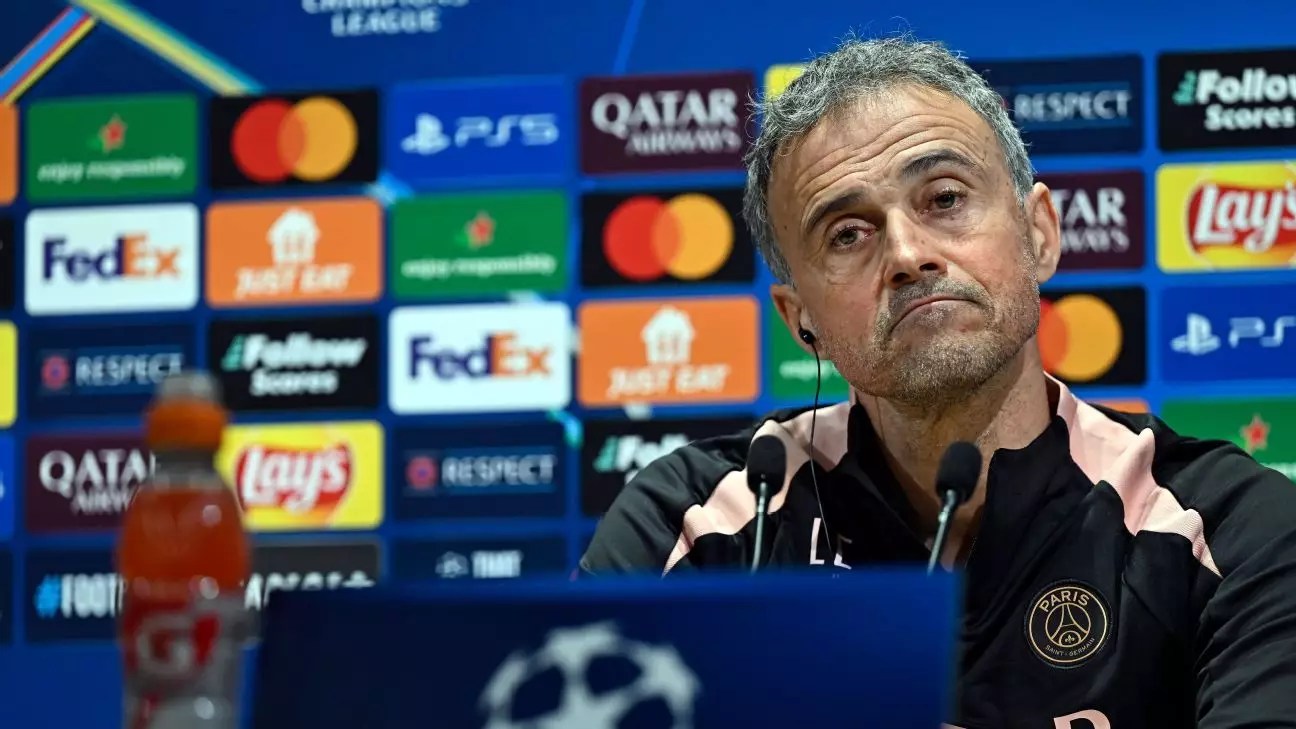The highly anticipated encounter between Paris Saint-Germain (PSG) and Manchester City in the Champions League is not merely a match-up of two elite football clubs—it is also a reunion of sorts for former teammates turned managers, Pep Guardiola and Luis Enrique. Their long-standing relationship, characterized by respect and camaraderie, adds an emotional layer to the contest. However, as they square off in a pivotal moment of the season, both coaches face immense pressure to redefine their teams’ fortunes within the competition.
The current standings in the Champions League have not been flattering for either side. PSG finds itself grappling with the reality of being on the verge of elimination, sitting at 25th place with just seven points, while Manchester City is precariously one spot ahead. This critical juncture underscores the significance of their upcoming clash, which, despite its personal implications, is equally a reflection of both teams’ battles to stay relevant in European football. Enrique’s comments about wishing this match was not the most critical reflect a dual struggle—the desire for personal connections versus the demanding nature of high-stakes football.
Luis Enrique candidly acknowledged his team’s underwhelming performance in previous fixtures, particularly against PSV Eindhoven and Atlético Madrid at home. Both matches were seen as missed opportunities that could haunt PSG’s aspirations in the tournament. His frank assessment serves as a reminder of the unpredictable nature of football, where dominating play does not always guarantee success. The lessons learned from these setbacks resonate now more than ever, as the stakes for both teams rise.
Champions League Format: A Game of Uncertainty
One of the most intriguing dimensions of this season’s Champions League is the new format, which has introduced an element of uncertainty regarding qualification. Teams are struggling to gauge exactly how many points will be necessary to progress, adding a psychological layer of tension to their performances. Enrique pointed this out, emphasizing the unpredictable landscape in which both clubs find themselves. This uncertainty creates an environment ripe for surprises, and it complicates traditional strategies employed by teams in European competitions.
Despite the challenges at hand, Enrique remains optimistic, expressing his desire for the upcoming match against City to serve as a stepping stone for more significant encounters in the latter stages of the tournament. His hope reflects a broader ethos within PSG—a desire to rise above current adversities and aim for greater glory. For both coaches, this match will not only test tactical prowess but will also reaffirm the values of sportsmanship, friendship, and the relentless pursuit of success in football.
The match between PSG and Manchester City transcends simple rivalry; it encapsulates the complexities of leadership, the unpredictability of sport, and the enduring ties forged through shared experiences. As both teams seek to navigate the pressures of the Champions League, fans and players alike will be watching closely to see how this story unfolds.


Leave a Reply